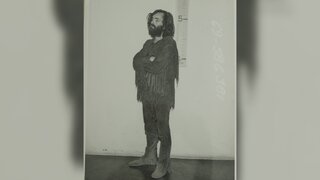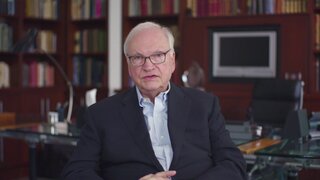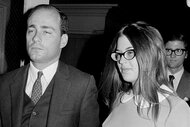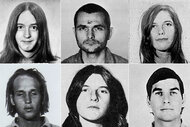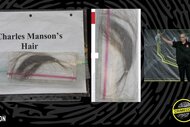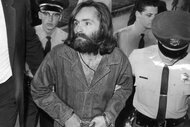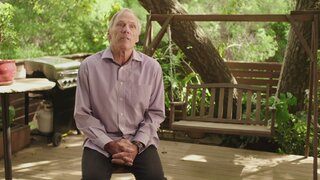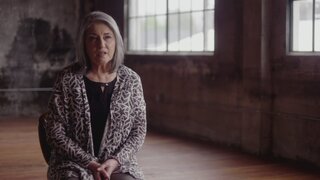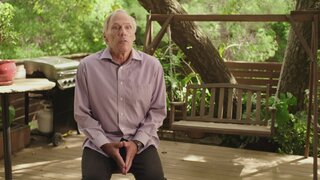Create a free profile to get unlimited access to exclusive videos, breaking news, sweepstakes, and more!
How Did Charles Manson’s Early Years In Prison Shape Him?
Charles Manson spent more than half his life behind bars by the age of 32 — using prison as a training ground to learn from seasoned criminals before embarking on his own reign of terror.
Charlie Manson often claimed that he was “raised up” in the prison system—having spent more than half of his life locked up by the age of 32—but just what kind of lessons did the enigmatic cult leader gain from his formative years in captivity?
Manson would cross paths with notorious criminals, hone his musical skills, learn new strategies to manipulate and influence people and gain a dangerous comfort level with prison—effectively removing jail as a deterrent to committing future crimes.
Manson’s mentor was Alvin Karpis, the leader of the famed Ma Barker gang, who committed a series of masterful robberies in the 1930s until he was taken down personally by FBI director J. Edgar Hoover. The notorious robber—who was known as “Old Creepy”—helped foster Manson’s love for music. Manson also learned other skills from the prison’s seasoned batch of criminals, paving the way for his own terrifying reign in criminal history after he was released from jail in 1967.
But while Manson would go on to lead his followers to commit some of the most heinous murders in American history—those who knew him described the young criminal as “unusually meek” “a kind of pest” and a “terrible criminal” in his early years behind bars.
A Troubled Start
Manson was born November 12, 1934 in Cincinnati, Ohio to 16-year-old Kathleen Maddox, a troubled teen who has been described as an alcoholic.
At the age of five, Manson was sent to live with his aunt and uncle after Maddox was sent to prison for robbery, according to Biography.
Manson himself would soon get in trouble with the law and by the age of 12, he was sent to the Gibault School for Boys in Terre Haute, Indiana for stealing, CNN reports. For the next two decades he’d bounce in and out of reform schools and prisons for a variety of infractions including stealing cars and forgery.
He also reportedly worked as a pimp during stints out of jail—even marrying prostitute Candy Stevens.
James Buddy Day, a film producer and director who talked extensively with Manson before his death and the show runner for Oxygen’s upcoming documentary “Oxygen: The Women,” told Oxygen.com that Manson was eventually sent to federal prison for a seven-year stint for a forgery. Manson told Day, who recounts the story in his upcoming book “Hippie Cult Leader: The Last Words of Charles Manson”, that he won a check in a poker game and tried to cash it at the grocery store.
When investigators tried to interrogate him about the check, he ate it, then fled to Mexico, Day said. However, Manson was eventually deported and convicted by federal authorities landing him in federal prison.
Life Behind Bars
Darrell Grey, a senior officer specialist at the federal prison on McNeil Island where Manson served time, also later recalled his time with Manson to Seattle station KIRO.
“Charlie was in the cell house that I was running at the time, and he was really no trouble,” Grey said.
The officer encountered Manson in 1961 and recalled the prisoner frequently playing his banjo or guitar.
“He was more of a kind of pest more than anything else,” Grey recalled to KIRO. “Just a complainer. Always complaining and usually about the same thing for days on end.”
During his stint at the McNeil Island prison Manson would also meet his mentor, Alvin Karpis. The famed robbery mastermind decided to take the young Manson under his wing and taught him how to play the guitar.
Karpis would later recall teaching “Little Charlie” in his 1980 autobiography written with Robert Livesey.
“This kid approaches me to request music lessons. He wants to learn guitar and become a music star. "Little Charlie" is so lazy and shiftless, I doubt if he'll put in the time required to learn,” he reportedly wrote. “The youngster has been in institutions all of his life —first orphanages, then reformatories, and finally federal prison. His mother, a prostitute, was never around to look after him. I decide it's time someone did something for him, and to my surprise, he learns quickly. He has a pleasant voice and a pleasing personality, although he's unusually meek and mild for a convict. He never has a harsh word to say and is never involved in even an argument.”
Manson himself would discuss the impact the older prisoners had on shaping his world view in a 1981 interview with Tom Snyder.
“I learnt everything that you do in prison, and I talked to all the guys and asked them everything they knew and they told me all the things that they knew,” he said.
Manson went on to describe advice he had gotten from an “old man” who was “ready to die.”
“He’d say ‘Well son, sincerity is the best gimmick remember that’ and I said ‘Alright be sincere, that’ll win it?’, and he said ‘That’s it. Sincerity and honesty said will do it, will trick them every time,’ and I said ‘Sincere and honesty I never tried that, I tried everything else but maybe I’ll try sincere and honesty,’” Manson said.
It has been frequently reported that Manson also honed his powers of manipulation after reading the Dale Carnegie book “How to Win Friends and Influence People,” however, Day disputed that claim.
He said Manson’s association with the book began in a 1958 prison review that mentioned that Manson and several of his other fellow inmates had enrolled in a prison course on Dale Carnegie. Day told Oxygen.com that, in reality, Manson only took a few of the prison courses on Carnegie’s ideas and then quit.
“That brief mention has become the myth that Manson read that book and somehow gleaned enough to become a master manipulator,” Day said, adding that Manson himself was barely literate.
Manson, A Free Man
In his 1981 interview Manson would tell Snyder he was never able to earn parole during his early years in jail.
“I went up to the board and they never would, they said I was incorrigible and not only was I incorrigible, but I never grow up and I kind of agreed with them,” he said.
Probation reports from the time would describe the young criminal as suffering from a “marked degree of rejection, instability and psychic trauma,” “unpredictable” and “constantly striving for status and securing some kind of love,” according to the Business Insider.
When Manson was slated for release in 1967, he reportedly told prison officials he didn’t want to be released saying, “On no, I can’t go outside there…I knew that I couldn’t adjust to that world, not after all my life had been spent locked up and where my mind was free,” CNN reports.
But, Manson would be released and would soon use his freedom to lead his followers to commit some of the most horrifying acts in American history.
